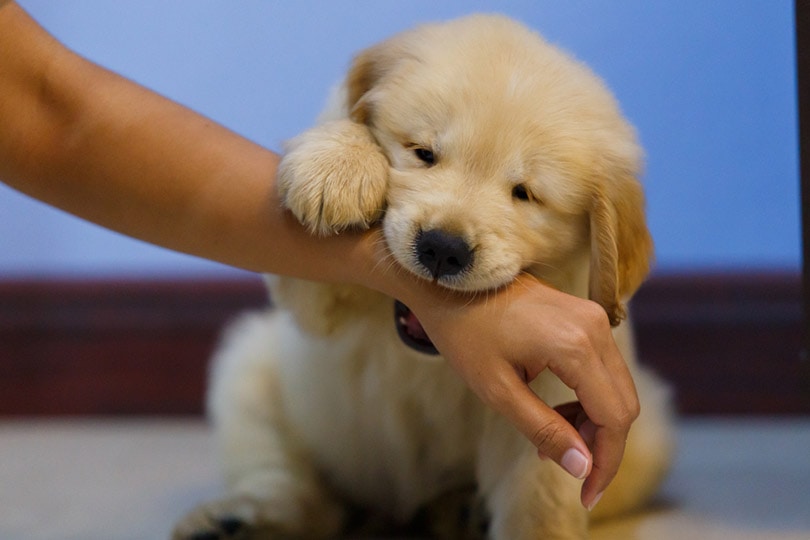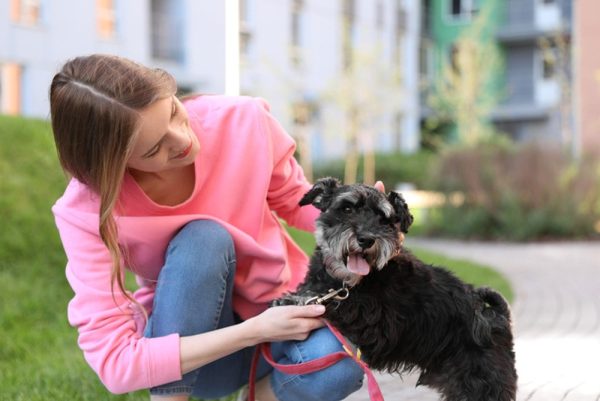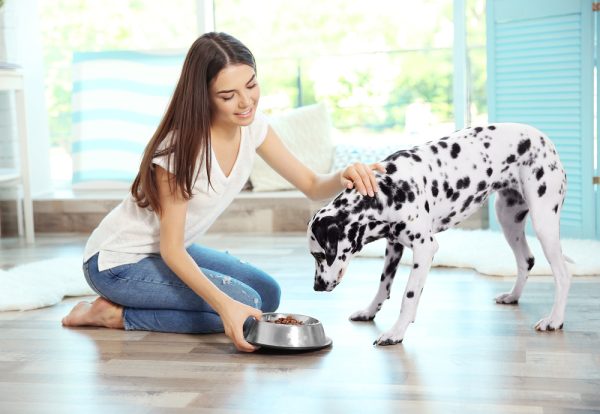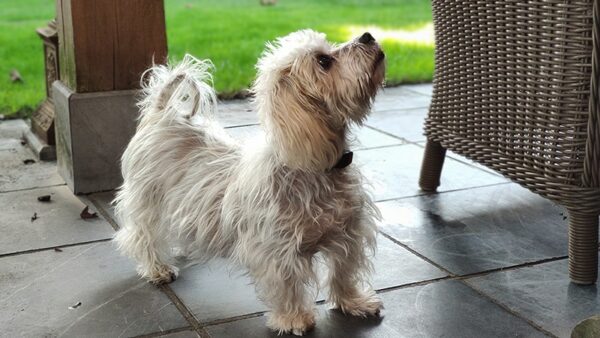You don’t have to be a dog expert to know that puppies are notorious for nibbling. Golden Retrievers are notorious for this, and it often lasts so long that people wonder if it ever stops. Consider how sociable and friendly they are by nature. Why is this habit so difficult for them to break? Golden Retrievers follow their basic instinct to bite because of their history with hunting, chasing, and even biting in some situations.

Why Do Golden Retrievers Bite?
Golden Retrievers start to explore the world with their mouths and eventually start to enjoy chewing on whatever they can get into their mouth. It strengthens their gums and teeth, but it is not a behavior most people want to encourage.
This breed is also more inclined to bite things because they were bred for hunting and retrieving small game. Aside from following their instincts, there could be other reasons that they are nipping at you or your possessions. Some dogs bite when they are scared, need help, or are in unfamiliar environments. Some chew simply because they’re bored. Biting is a natural reaction for many situations. Still, it must stop before it turns into a habit.
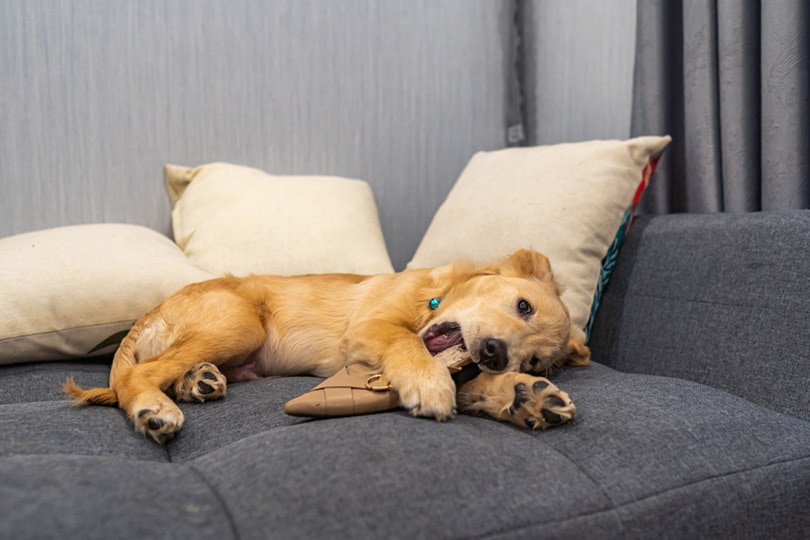
When Do Golden Retrievers Stop Biting?
Golden Retriever litters typically stop biting around 8–14 weeks old. By this age, they’ve spent enough time with their mom and siblings to know that when they bite, they often get bitten back. The pain conditions them not to bite without a threat.

The 4 Ways to Train Golden Retrievers to Stop Biting
Thankfully, there are many ways to condition your Goldens to stop biting.
1. Keep Them Active
Dogs who are mentally and physically stimulated are less likely to have behavioral issues. Exercise them daily. When playing, keep the sessions gentle. It helps to use toys and games that are specifically meant for chewing, like tug-of-war, to teach them when it is and isn’t appropriate to bite. However, do not do this while they are still being trained.
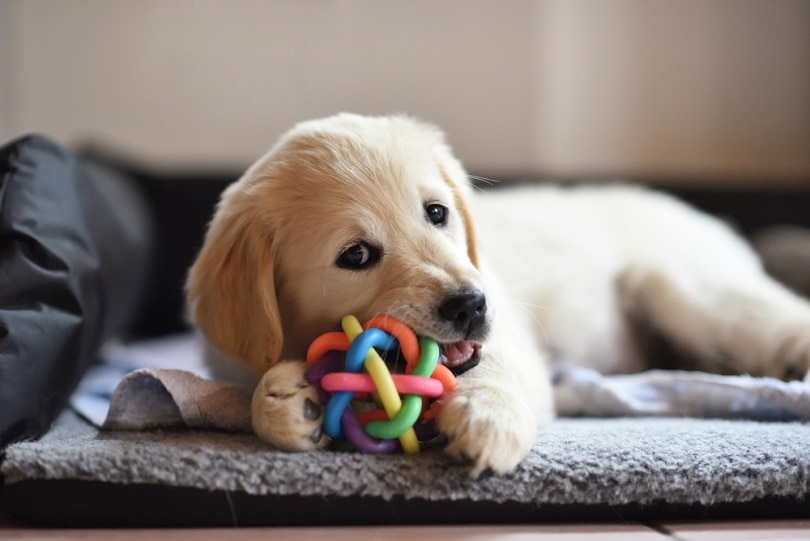
2. Socialize Them
If possible, enroll your dog in obedience classes as soon as possible. Some dogs feel threatened more easily than others, and they may act out around other dogs if not properly trained and socialized. Introduce them to new people and animals as often as possible. Carry a muzzle with you if you’re afraid they are going to hurt somebody.
3. Positive Reinforcement
The best form of training is with positive reinforcement. Use lots of praise and treats whenever your dog is acting in a way you want them to. You cannot afford to skip this type of training because it is the most effective. Talk to a vet if you would ever be unsure about the ins and outs of a positive reinforcement techniques.
If you need to speak with a vet but can't get to one, head over to PangoVet. It's our online service where you can talk to a vet online and get the advice you need for your pet — all at an affordable price!

4. Avoidance Training
Training is a crucial part of a dog’s development if you want them to have good behavior. Whenever your dog goes to bite you, say no frequently to let the dog know you don’t approve. Walk away from the dogs when this happens to show that their behavior won’t be tolerated or rewarded.

What to Do When a Dog Bites
A dog trying to bite you can be scary.
- Don’t pull your hand back
- Train children not to tease the dogs
- Do not punish your dogs
- Remain consistent with your demands

Final Thoughts
Biting is a normal part of puppyhood but it isn’t ideal to have them continue that behavior as they continue to mature. The older they get, the bigger a sign it’s that you need to fix the problem. If you continue to allow your dogs to bite people, animals, or objects, someone is going to get hurt. Start training your dog early, and you’ll get to experience just how loving these dogs can be.
- Related Read: Do Golden Retrievers Shed? (How Much and How Often?)
Featured Image Credit: Damix, Shutterstock
